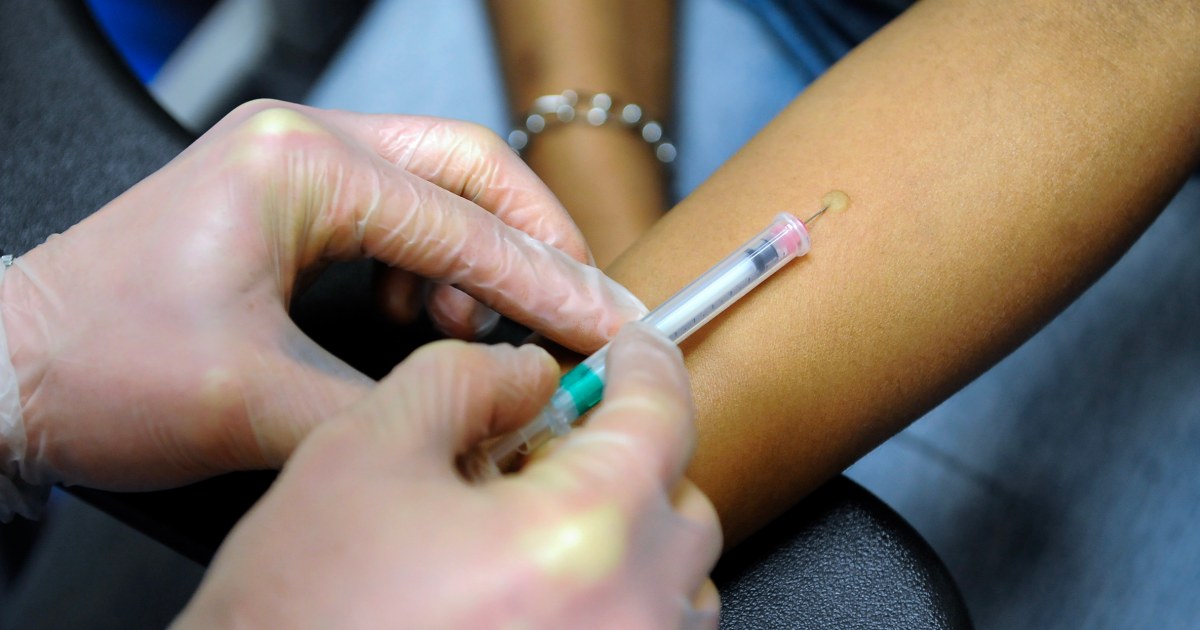
A Nebraska health department is investigating more than 500 possible exposures to tuberculosis linked to an active case at a YMCA in Omaha.
The infected person was part of the YMCA’s drop-in child care program, so those at risk of exposure are primarily young kids.
The Douglas County Health Department said anyone who had close contact with the infected person from May 30 through Oct. 30 should get tested for tuberculosis bacteria, which can spread through the air when someone with an active case coughs, sneezes or speaks.
Many people who become infected with the bacteria never develop symptomatic tuberculosis. Up to 13 million people in the U.S. have latent tuberculosis infections, meaning the bacteria is inactive and the infected person doesn’t have symptoms and isn’t contagious. Around 5% to 10% of infections, if left untreated, progress to active disease.
In adults, symptoms typically include a bad cough that lasts three weeks or longer, chest pain, or coughing up blood or phlegm, according to the Centers for Disease Control and Prevention. Children may have symptoms such as a cough, weakness, lethargy, weight loss, fever or night sweats.
Dr. Kari Neemann, medical adviser for the Douglas County Health Department, said the active case was diagnosed over the weekend.
The health department learned about the case Monday, then discovered the link to the YMCA on Tuesday, said Justin Frederick, the department’s deputy director.
The YCMA of Greater Omaha said it used attendance records to determine which children or staff may have been exposed, then contacted those individuals Thursday.
People who were in the same room as the patient are considered close contacts, but those who had brief exposures in areas such as cafeterias, hallways, restrooms or gymnasiums are not.
“If folks attend the YMCA but they don’t have children in the Child Watch program, I would say their risk is zero,” Frederick said.
Neemann said she’s optimistic that there isn’t a risk to the larger community.
“Kids really have a very low risk of transmitting,” she said. “While we’re doing this huge investigation, we don’t expect it to go beyond this too much.”
The day care patient got sick in August
Douglas County’s tuberculosis investigation may be one of the largest ever in the Midwest, Frederick said, but Nebraska historically doesn’t see many cases.
Nationally, there were 8,300 tuberculosis cases in 2022 — an increase compared to the previous two years, but still lower than pre-pandemic levels. Just 28 of those cases were in Nebraska.
Frederick said Douglas County identified 15 cases last year, and another 15 as of September of this year.
The infected patient at the day care developed a cough in August, he said, so health officials assume the person was infectious around that time. The department’s testing recommendation is based on people who were exposed to the patient three months before or after that cough started.
The patient has a case of pulmonary tuberculosis, Frederick added, meaning the bacteria is concentrated in the lungs. In more complicated cases, tuberculosis bacteria can infect other organs like the brain, kidneys or spine.
Frederick said the patient is being isolated and given treatment under the department’s supervision. Treatment for tuberculosis — antibiotics taken daily or weekly — typically lasts at least six months, though some courses can take a year or longer.
Testing and treatment recommendations
Infants and young children have a higher risk of developing active disease compared to older children and adults. Little kids are also more likely to develop severe tuberculosis that spreads from the lungs to other parts of the body, or results in meningitis.
For that reason, the Douglas County Health Department is recommending that kids under age 5 who were exposed to the infected patient within the last 10 weeks get a chest X-ray to make sure their lungs are clear of infection, plus a tuberculosis test and a course of rifampin — an antibiotic that can prevent them from developing active disease.
Children’s Nebraska is holding a clinic this weekend to administer tests, X-rays and treatment. Neemann, an infectious disease specialist at the hospital, said kids under age 2 will receive a skin test, while kids ages 2 and up will get a blood test.
Frederick estimated that around 200 kids have been asked to come to the clinic, and 150 are registered to attend so far.
When more than 10 weeks have passed since a child’s last exposure, they should get tested again to confirm that they aren’t infected, Neemann said. That’s because it takes around two to 10 weeks for an infection to develop.
If a child tests positive, but has no symptoms, they can finish the full course of rifampin, which usually lasts several months.
The YMCA said other close contacts who were exposed from late May until Aug. 21 can get tested at clinics held from Nov. 15-17 at the organization’s Westview facility.






